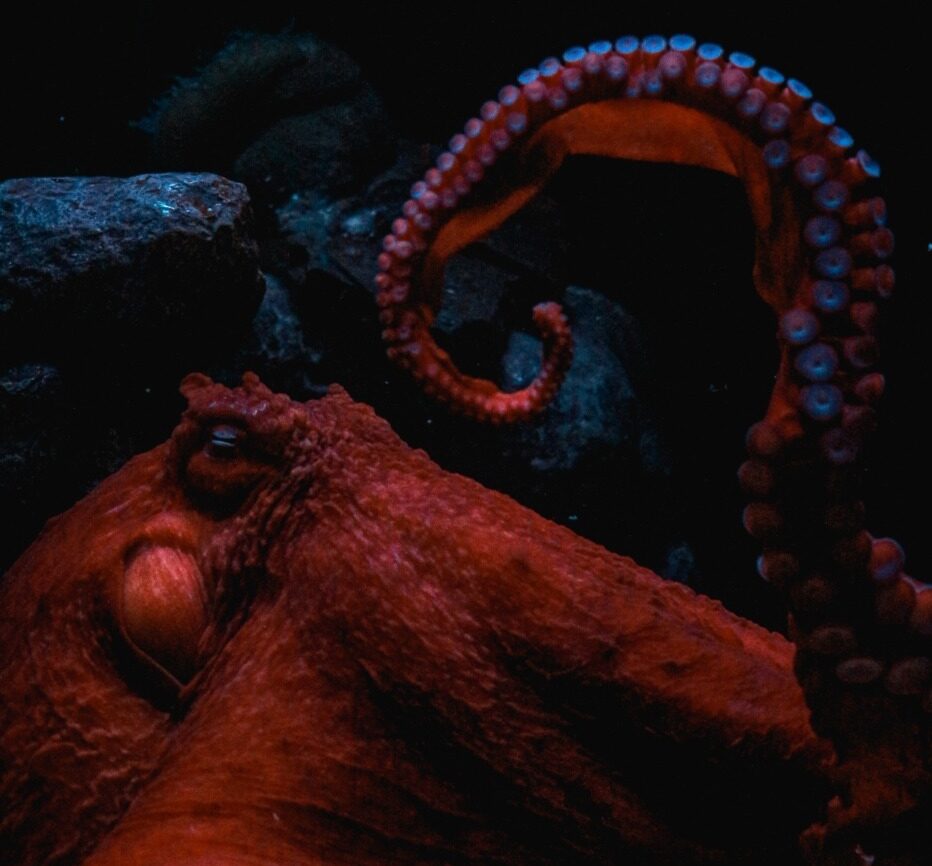Octopuses change colour while dreaming
Octopuses change colour whilst sleeping, and it may be due to dreaming, a new study has found.
Octopuses are renowned for their extraordinary behaviour; numerous studies have observed octopuses navigating mazes, playing with objects, and even distinguishing between different human faces. Their abnormally large brains and mischievous behaviour gives these cephalopods, which evolved some 470 million years ago, the title of one of the most intelligent invertebrates on the planet. To add to their exciting features, scientists have now discovered that octopuses have cyclical rhythms of sleep similar to humans.
A research team in Brazil has captured video recordings of the common species Octopus vulgaris changing colour and texture during their sleep, as well as experiencing rapid eye movements. The octopuses’ dynamic sleep patterns have led the team to conclude that octopuses experience two distinct phases of sleep, quiet and active.
During ‘quiet sleep’, octopuses are pale, with their pupils either narrowed or closed. The animals “stay in the same position for long periods of time – very quiet,” observed Ribeiro, a neuroscientist from the study. Any sporadic movements that the creatures did make were very slow and soft. This peaceful phase typically lasted around seven minutes.
For short bursts lasting around 40 seconds, the octopus’s skin rippled with colour, dancing between deep hues of red, rusty orange and shocking white
However, during their active phase of sleep, the octopuses exhibited some exciting changes. For short bursts lasting around 40 seconds, the octopuses’ skin rippled with colour, dancing between deep hues of red, rusty orange and shocking white. The skin texture also oscillated between soft and hard, the tentacle suckers contracted and there was rapid movement of the eyes.
To make sure the octopuses were truly asleep and not fooling the researchers by staying quiet but alert, Ribeiro and his colleagues performed visual and vibratory tests.
First, the team tried to grab attention of their octopuses by presenting them with videos of live crabs. If the octopus was awake, the scientists could expect to see them reach out to try and catch some dinner.
If this failed to elicit a response, the researchers hit the tank wall with a rubber hammer to see if they got a reaction. However, during both quiet and active sleep the octopuses were totally unresponsive to this stimulation. The team were able to verify that during ‘active’ sleep, though dynamic, the octopuses were truly sleeping.
Whilst sleep has been well characterised in humans and other vertebrates, much less is known about invertebrate sleep.
Sleep studies often measure electrical activity in the brain, not an easy feat to measure in animals swimming around underwater, let alone octopuses who are likely to pull away anything placed on their many arms. In fact, the Brazilian researchers’ study is the very first to confirm that an active phase of sleep occurs in Octopus vulgaris.
Interestingly, the research team points out that the octopuses’ sleep cycle is much like sleep cycles seen in other animals, including humans. Octopus sleep was found to periodically cycle between quiet and active phases, with active phases repeating roughly every 30 minutes.
“It really resembles what you see in reptiles and birds: long, quiet sleep followed by short, brief episodes of active sleep,” says Ribeiro. This evidence points us to the conclusion that octopuses have ultradian sleep cycles – biological cycles which are shorter than a 24-hour circadian day. These cycles also exist in human sleep patterns.
Ribeiro and his colleagues believe that octopuses’ active sleep is in fact very similar to human REM sleep
In humans, our ultradian rhythm consists of three stages of quiet sleep, followed by a stage called rapid-eye movement (REM) when (surprise) our eyes move rapidly. Importantly, REM, which can last up to an hour, is the stage in which we experience vivid dreams. Ribeiro and his colleagues believe that octopuses’ active sleep is in fact very similar to human REM sleep.
Could it be possible that octopuses also spend their nights dreaming away? It’s important to remember that, whilst REM sleep is atypically long in humans, active sleep only occurs for up to a minute in octopuses.
“If during this state there is any dreaming going on, it should be more like small video clips, or even GIFs,” Medeiros, another neuroscientist from the study, adds. However, REM sleep also has another important function in humans – memory and consolidating learning. Given their high intelligence, it’s quite possible that octopuses use their active sleep for learning and memory processing, similarly to humans.
In the future, the team is hopeful to continue studying octopus sleep behaviour, how it affects changes in the brain and how this might impact their ability to perform tasks. Given that these fascinating creatures diverged from our vertebrate ancestors over 500 million years ago, it’s pretty remarkable that we still hold so many similarities with our eight-legged friends.

Comments